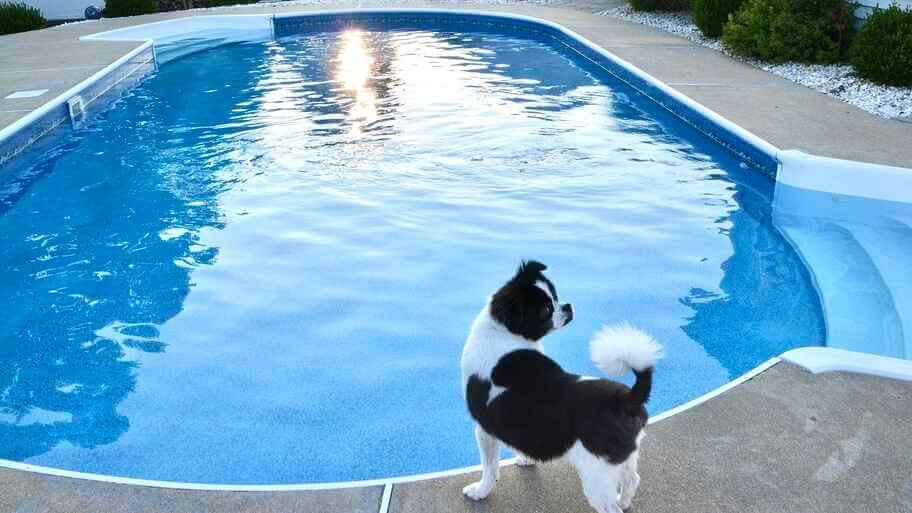Whether you already own a pool or are thinking of adding one to your backyard property, having a swimming pool is an exciting idea. However, your pool is more than just a fun toy; it is also a significant investment that deserves proper care throughout the year. You should know if your pool affects homeowners insurance.
Some pool insurances include homeowners’ premium coverage. However, this is not always the case. Make sure to review your insurance policy to find out whether this coverage is included.
It is important to understand the relationship between your pool and your homeowner’s insurance. You should know how your insurance is affected by your pool and if you are covered in the event of an unfortunate accident in or around your pool.
Does Homeowners Insurance Cover Pools?
Most insurance policies can extend coverage to your pool, but you will likely have to increase your premiums. To determine exactly how your pool coverage works, you must first consider whether your swimming pool is part of your home or an external structure. This distinction will determine how your pool affects your replacement cost value or personal property limit. There are two options:
Your Pool Is Part of Your House
If your pool is considered part of your home for insurance purposes, which is often the case with standard pools such as a 14×30 inground pool, it will fall under your replacement cost coverage. This coverage pays to replace your home. If your pool is considered as part of your home, the replacement value of your home increases accordingly. This also increases the cost of your insurance.
Your Pool Is an External Strucuture
If your pool is considered an external structure, which is more often the case with above-ground pools, it may be covered by your insurance’s personal property coverage. This coverage replaces belongings rather than your home. You should check if your policy’s personal property limit is high enough to cover the cost of repairing or replacing your pool. If not, you may want to consider increasing your personal property limit. However, this will also increase your insurance premiums.
How much does an inground pool increase homeowners insurance? Generally, you will pay an extra $50 on your annual insurance premium to ensure that your insurance policy covers potential damage to your pool.
How A Pool Can Affect Your Homeowner’s Liability Insurance
Owning a pool makes you responsible for any pool-related accidents. For instance, a child who wishes to play in the pool may be in danger of drowning. If this happens, you, the homeowner, would be liable for the accident.
The good news is that homeowner’s insurance covers medical bills or lawsuits for any accidents in the pool. Indeed, most standard homeowner insurance policies have a minimum liability protection of $100,000, but you can buy coverage of up to $500,000. You can also consider purchasing an umbrella policy to increase your liability coverage.
Should You Get a Personal Umbrella Policy?
An umbrella policy supplements your homeowner insurance policy, and you can use it once you have exhausted your liability limit. However, getting the policy is a personal choice. If you own a pool, you may want to add an umbrella policy because it will add approximately $1,000,000 or more to your liability protection.
This type of policy could help you pay, for instance, for the funeral or medical costs of someone who dies or is injured in your pool. The policy will cover the following:
-
- Bodily injury: an umbrella policy will cover extra costs if you are sued for pain and suffering by someone who was injured in your pool.
- Landlord liability: if you are a landlord, the umbrella policy will cover any injuries that your tenant incurs from using your pool. These injuries might be a result of the pool malfunctioning.
- Personal injury: an umbrella policy will also cover any other personal damages, aside from bodily harm, that can result from your pool.
It’s advisable to consider getting an umbrella policy if your standard homeowner policy cannot cover additional costs caused by bodily injuries from your pool.
Pool Regulations and Risk Mitigation
You may have no control over pool accidents or environmental damage, but that does not mean you don’t have to set some pool regulations, do regular maintenance, and take other actions that mitigate risks. Some of the steps you may take include:
-
-
- Install a fence and lockable gate around your pool. This measure will keep intruders away and ensure that your insurance company covers any damages resulting from intrusion. Many insurers will ask about your lockable gate and fence height before covering pool damages. Ensure that your fence is six feet tall or more. Installing an inground pool dome enclosure can be an additional measure to prevent intruders or children from being injured in your pool and can prevent debris from entering the water.
- Install an alarm on your gate. An alarm will alert you of an intrusion into the pool. You should find an alarm that rings loud enough and long enough for you to respond to it from anywhere within your house.
- Impose a no swimming alone policy. Kids and beginner swimmers may be in danger of injury or drowning when swimming alone. You will be liable for such incidences. To prevent this from happening, ensure that no person can use the pool alone.
- Get CPR training. The training might be helpful in emergencies and prevent significant health damage.
- Maintain neatness. Clear obstacles from around the pool to protect people from falls.
- Impede entry. Remove or raise pool ladders, if possible, to prevent intruders from entering your pool or injuring themselves on the ladders.
-
Protecting Your Pool from Winter Hazards
Protecting your pool from intruders is the first step of risk mitigation. The second is protecting the pool from winter hazards. While you have no control over the weather, you should protect the pool as best you can against hazards such as inground pool ice damage. A winter pool cover is a great investment to protect pools through the harsh weather. You may also want to install a winter pool cover for inground safety as it can prevent unforeseen injuries.
Final Thoughts
Before owning an inground pool, ensure your homeowners’ insurance covers it. If your liability limit is below the potential pool damage, consider supplementing it with umbrella coverage. But relying on insurance premiums is not enough. Protecting your pool against intrusion and sudden weather changes is the best way to avoid unexpected costs.
Featured Image: Twenty20








